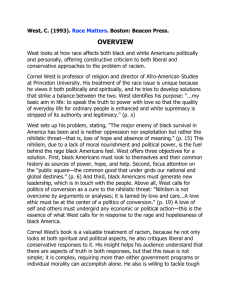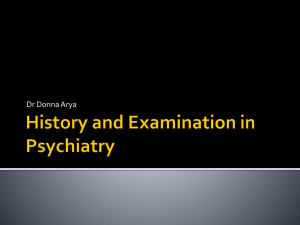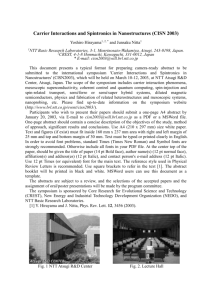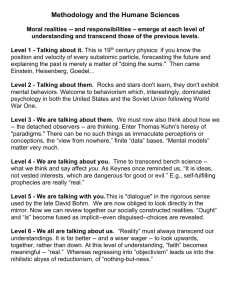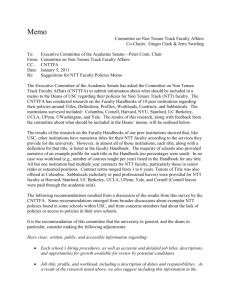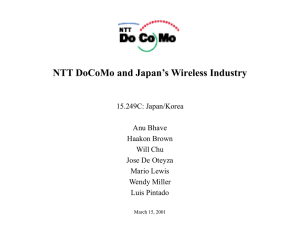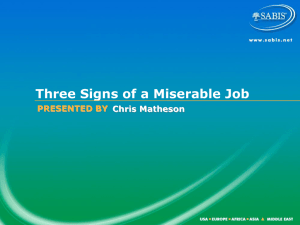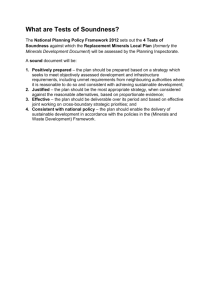Morality, amorality, and truth irrelevance in a nihilistic type theory
advertisement
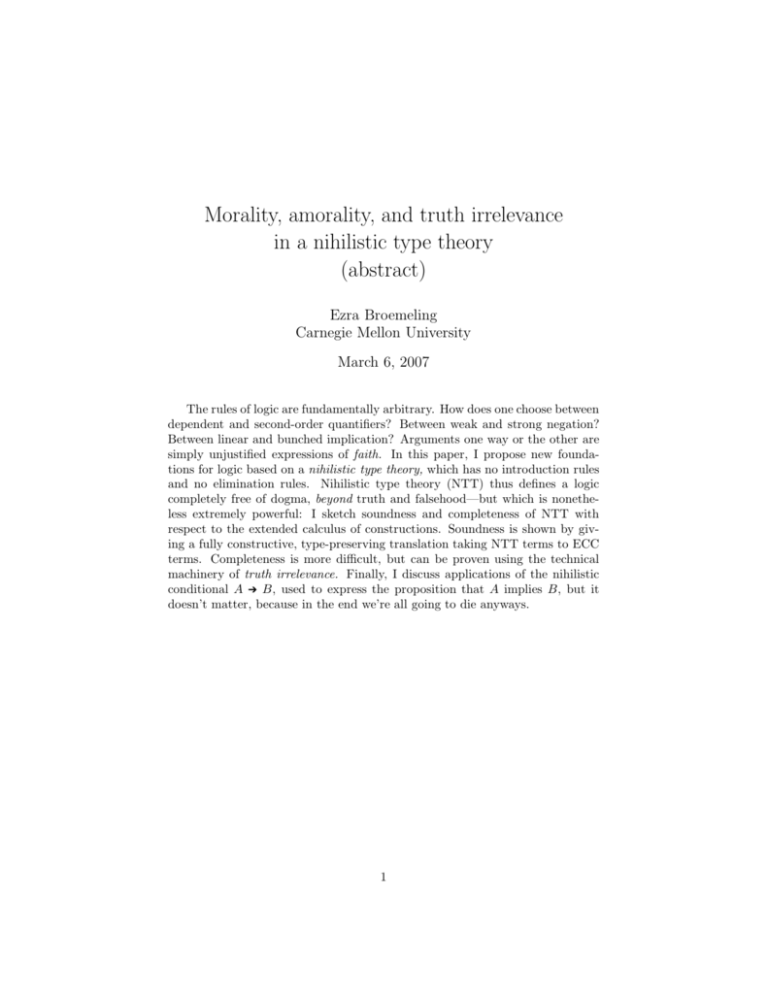
Morality, amorality, and truth irrelevance in a nihilistic type theory (abstract) Ezra Broemeling Carnegie Mellon University March 6, 2007 The rules of logic are fundamentally arbitrary. How does one choose between dependent and second-order quantifiers? Between weak and strong negation? Between linear and bunched implication? Arguments one way or the other are simply unjustified expressions of faith. In this paper, I propose new foundations for logic based on a nihilistic type theory, which has no introduction rules and no elimination rules. Nihilistic type theory (NTT) thus defines a logic completely free of dogma, beyond truth and falsehood—but which is nonetheless extremely powerful: I sketch soundness and completeness of NTT with respect to the extended calculus of constructions. Soundness is shown by giving a fully constructive, type-preserving translation taking NTT terms to ECC terms. Completeness is more difficult, but can be proven using the technical machinery of truth irrelevance. Finally, I discuss applications of the nihilistic conditional A : B, used to express the proposition that A implies B, but it doesn’t matter, because in the end we’re all going to die anyways. 1
